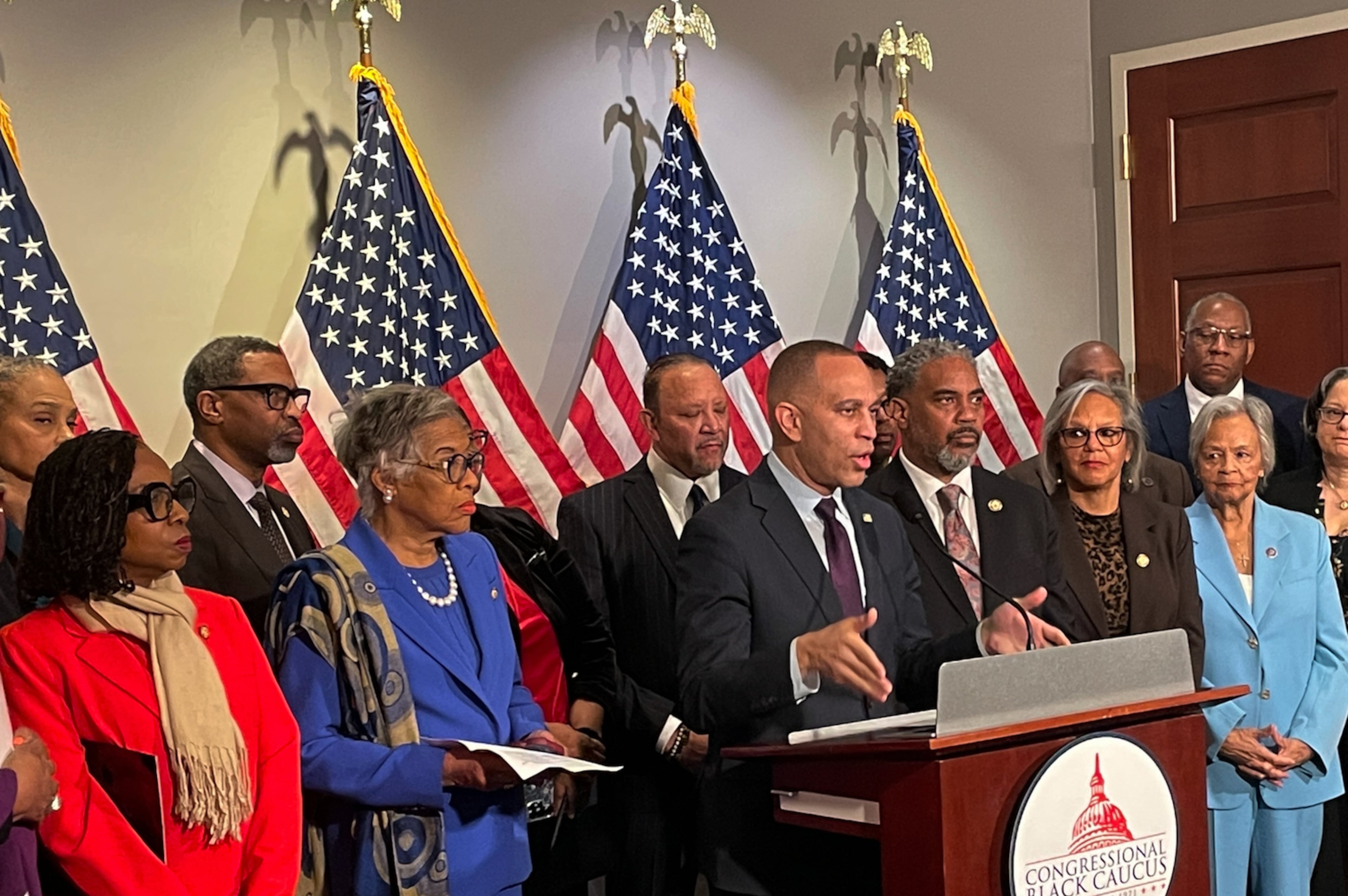Democrats must help voters understand that substance beats style

On Thursday, the eyes of the nation were on Atlanta for the highly anticipated U.S. presidential debate between President Joe Biden and former President Donald Trump. According to a New York Times poll, an estimated 74% of registered voters — roughly 161 million people — were expected to watch the televised debate, though CNN said Friday said about 48 million tuned in.
I was included among these millions of Americans as I attended a debate watch party at the Gathering Spot in Atlanta with about 200 loyal Black Democratic voters and supporters.

As a former politician, I am acutely aware of the importance of debates. Debates are like athletic contests. They provide voters with a side-by-side comparison of candidates from opposing sides. Candidates who debate must prepare, rehearse and practice. They must master the facts and understand their policy positions. They must hold up strong under pressure, be quick on their feet and answer unanticipated questions from moderators. Equally important, candidates must have presence and show command. They must execute by delivering a coherent message with confidence, if they want to win in the eyes of the public. In other words, the successful candidate who wins debates should have substance and style.
My Democratic friends at the Gathering Spot and across the nation thought Biden provided solid substance during the debate by standing on a strong record. Unfortunately, he was woefully inadequate in style.
The historical precedent of the Kennedy-Nixon presidential debate in 1960 highlights the enduring influence of style in shaping public opinion. Despite Nixon’s strong grasp of the policy issues, Kennedy’s composed and confident demeanor ultimately swayed voters in his favor. Similarly, Trump’s commanding presence on the debate stage overshadowed Biden’s performance, leading to a perception of victory for the former president.
As we Democrats grapple with the aftermath of the Biden-Trump presidential debate, it is essential to analyze the implications of the candidates’ performances and consider the next steps for the party. The debate provided a stark contrast in style between the two candidates, with Trump’s aggressive and combative approach overshadowing Biden’s lackluster performance. Though substance should be the primary focus in evaluating candidates, style often plays a significant role in shaping public perception.
As Democrats navigate the complex landscape of the 2024 presidential election, it is crucial to consider the implications of the debate and strategize accordingly. The party is faced with a challenging dilemma for many rank-and-file Democrats as well as some Independents: a candidate they may not fully support in Biden, or a candidate they vehemently oppose in Trump. Between these two options, I fervently believe that Biden is the only option as president for our nation. Despite calls by some, Biden should not drop out of the race, because it is too late to nominate a Democrat replacement. The lessons of the 1968 and 1980 Democratic Conventions are reminders of that contested conventions lead to losses for the Democratic nominees in general elections. Therefore, it is essential for Democrats to prioritize unity and focus on the overarching goal of defeating Trump in the upcoming election.
One potential strategy for Democrats is to rally behind Biden and leverage his experience and policy expertise to counter Trump’s aggressive rhetoric and frequent distortions of the truth. Biden might not have the same charisma and style as Trump, but he has character, he is personable, and he has an extensive record of public service and dedication to progressive values could serve as a compelling platform for the party. By emphasizing Biden’s strengths and presenting a cohesive message to voters, Democrats can effectively counter Trump’s divisive tactics and unite behind a common goal.
Additionally, Democrats should focus on mobilizing grassroots support and engaging with key demographics to strengthen a fracture broad coalition of voters. By reaching out to Black and Latino communities, college students, women and working-class Americans, Democrats can solidify their base and energize key constituencies to turn out in support of Biden as our party’s nominee. This approach was effective for former President Barack and for Biden in 2020 and could serve as a powerful tool for Democrats in the 2024 election.
Ultimately, Thursday’s debate serves as a wake-up call for Democrats to reassess their strategy and focus on the path forward. Style might have played a significant role in shaping public perception of the debate, but substance should remain at the forefront of the party’s messaging and platform. By prioritizing unity, mobilizing grassroots support, and emphasizing Biden’s strengths as a candidate, Democrats can position themselves for success in the upcoming election and work toward a brighter future for the nation.


